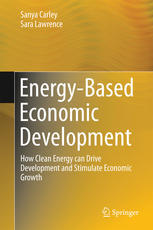

Most ebook files are in PDF format, so you can easily read them using various software such as Foxit Reader or directly on the Google Chrome browser.
Some ebook files are released by publishers in other formats such as .awz, .mobi, .epub, .fb2, etc. You may need to install specific software to read these formats on mobile/PC, such as Calibre.
Please read the tutorial at this link: https://ebookbell.com/faq
We offer FREE conversion to the popular formats you request; however, this may take some time. Therefore, right after payment, please email us, and we will try to provide the service as quickly as possible.
For some exceptional file formats or broken links (if any), please refrain from opening any disputes. Instead, email us first, and we will try to assist within a maximum of 6 hours.
EbookBell Team

4.0
66 reviewsEnergy is becoming a prominent driver of economic development. Each year, billions of dollars are invested around the world by the public and private sectors in low-emissions energy development and energy efficiency planning. Energy-based economic development (EBED) is a domain that seizes the opportunities inherent in clean energy development to drive innovation and generate economic growth.
Energy-based economic development:How clean energy can drive development and stimulate economic growth delivers working definitions, common approaches, descriptions of supportive policy mechanisms, and suggested metrics for evaluation. The book offers a unified framework for EBED that is supported by examples and leaves readers better equipped to design, plan, and implement EBED initiatives. Case studies illustrate how national and subnational initiatives adopt to a locale’s energy asset base, energy and economic development needs, and the context in which the initiative operates. Descriptions of the energy projects supported by the American Recovery and Reinvestment Act offer insights about what worked and what did not and suggest ways in which governments can be better prepared to manage EBED projects in the future.
This book provides the tools necessary to work toward simultaneous energy and economic development goals and facilitates discussion for an advanced policy agenda of energy efficiency, energy diversification, innovation-led economic growth, and job creation.